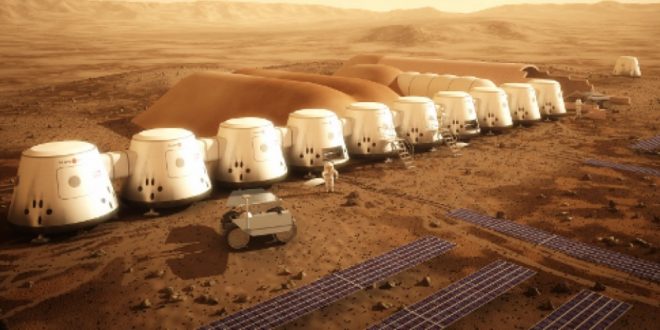SpaceX’s current favorite place to land on Mars is reportedly Arcadia Planitia, which combines flat terrain, potential deposits of water ice and an equatorial region well-suited for solar power.
Paul Wooster, from SpaceX, revealed one area on Mars with a flat surface and close proximity to ice that looks particularly promising to support human life.
Experts are also looking for locations close to the equator and have identified four regions in the northern hemisphere of Mars, Spacenews reported.
Mr Wooster said: “The team at JPL has been finding that, while the areas look very flat and smooth at CTX resolution, with HiRISE images, they’re quite rocky.
“That’s been unfortunate in terms of the opportunities for those sites.”
At a conference last year Musk revealed exactly how he plans to get 1 million people to the Red Planet and establish a colony there in as little as 50 years.
He said: “What I really want to do here is to make Mars seem possible — make it seem as though it is something that we could do in our lifetimes, and that you can go.”
The Red Dragon mission could open up the path for manned missions by SpaceX.
Musk plans to develop an Interplanetary Transport System — the most powerful rocket ever built — to carry hundreds of people to Mars per journey.
It comes as NASA has been testing humanoid “iron men” robots to explore the hostile conditions on Mars.
Agencies/Canadajournal
 Canada Journal – News of the World Articles and videos to bring you the biggest Canadian news stories from across the country every day
Canada Journal – News of the World Articles and videos to bring you the biggest Canadian news stories from across the country every day



